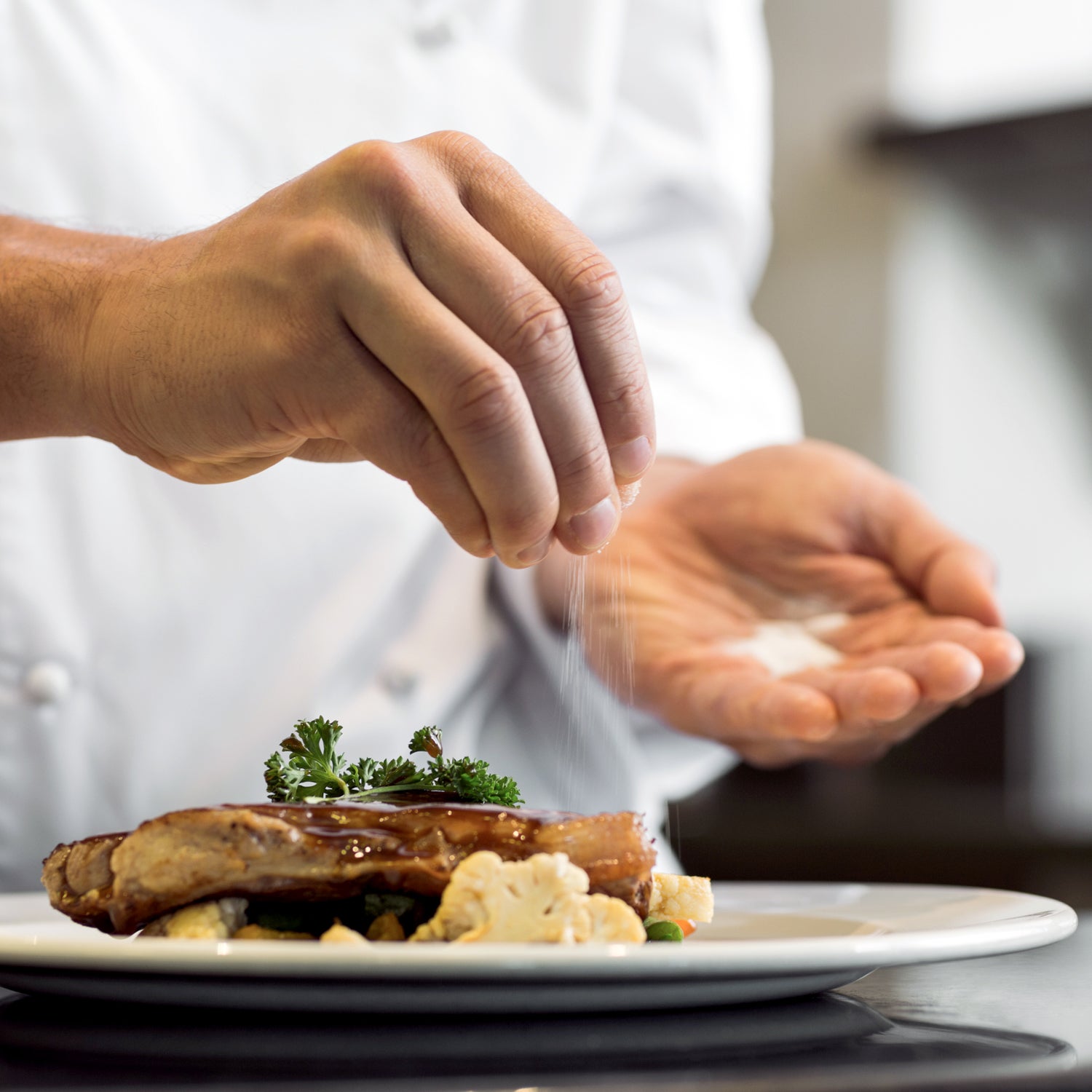Word of advice: don’t cook for a dinner party after an afternoon spent hammering the trails. Your guests may question your sense of taste.
Dehydration plays havoc with your taste buds, and that craving for salt post-exercise could find you mindlessly turning your stew into an unpalatable sodium bomb. The fix: down an entire bottle of an electrolyte-laced, low-to-no-calorie sports drink before you break out the saucepan. And take solace that you’ve got something in common with James Beard-worthy restaurant kitchens across the country, who have been struggling with dehydration—and over-salting meals—recently.
Sports drinks are becoming the kitchen’s go-to savior. Portland, Oregon’s Chris DiMinno has spent 17 years working in kitchens, spending five years as executive chef of city’s acclaimed farm-to-table restaurant in the Ace Hotel before taking over as head chef at the company cafeteria for .
DiMinno uses water bottles laced with to keep him and his staff going. “Kitchens are hot, many aren’t air-conditioned, and the cooks are going non-stop for six hours or longer at a time,” he says. “When a cook becomes dehydrated, he loses his focus, which leads to sloppy cooking, eventually affecting his sense of taste.”
Everyone who’s gone to culinary school knows they need to stay hydrated, says DiMinno. But that’s not easy considering the typical culinary lifestyle. “We work ‘til midnight, go out and drink ’til 3 in the morning, sleep five hours and then pound coffee all morning,” he says. “That puts most cooks in a chronic state of dehydration.”
And that’s bad news if you’re a professional chef. According to Stacy Sims, Ph.D., when you’re dehydrated, your perception of sweetness is enhanced—it’s how your body helps limit the amount of glucose you ingest. That could make for some bland chocolate cakes from a fluid-starved dessert chef. Conversely, your perception of sodium decreases when dehydrated—this is what leads you to crave a bag of over-salted potato chips.
In Boulder, Colorado, Bobby Stuckey, owner of , faced a similar dilemma as DiMinno. Earlier this summer, Stuckey discovered that dehydration among his kitchen staff during the 100-degree summer months was , 5280 Magazine reported. Patrons complained.
At Frasca, the complaints stopped after Stuckey brought into the kitchen. Back in Portland, which has suffered through an unusually hot summer this year, DiMinno is trying to instill an athlete’s perspective on the job, pointing out that “same as any sport, cooking is about being able to sustain your intensity. If you’re not hydrated, you can’t finish.”
So next time you start preparing dinner, slug down a sports drink instead of that bottle of beer. Your guests will be glad you did
Flavor Saver
Sports scientist Stacy Sims’ recipe for low-calorie rehydration
Combine and stir together:
16 oz. water
1/8 tsp salt
1 tsp maple syrup


